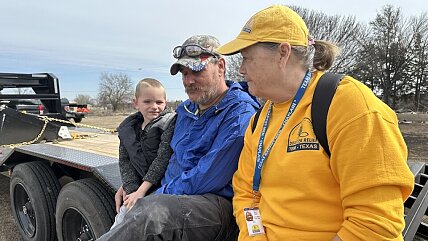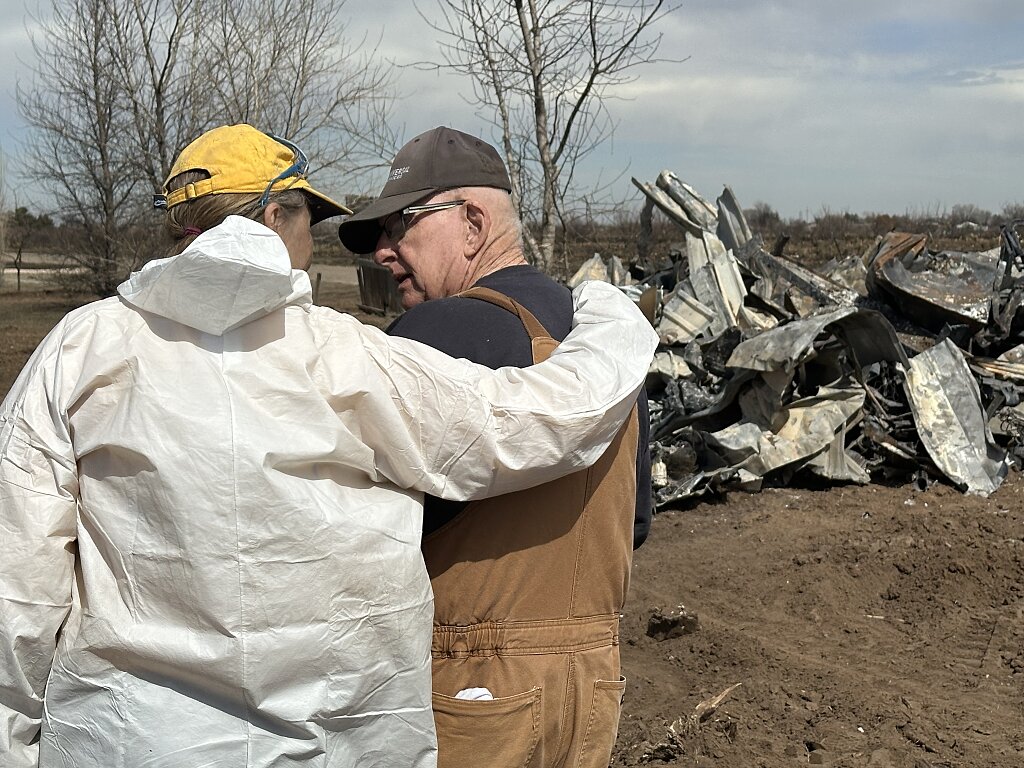One million acres burned. Two people killed. Entire farms and ranches lost. Thousands of livestock dead.
The scope of devastation associated with a late-February complex of fires in the Texas Panhandle boggled the mind. It took more than three weeks for Texas’ largest wildfire in history to be contained.
In the small Hutchinson Country town of Fritch, more than 100 families lost their homes to the fast-moving Windy Deuce fire.
 One homeowner, Frank Probst, recalled the fire swept through his neighborhood so fast he didn’t know his home was in danger until his grandson alerted him to the flames near his backyard, whipped up by 40-mph winds. By the time Probst began evacuating with his grandson, the fire had reached his yard and soon engulfed his home.
One homeowner, Frank Probst, recalled the fire swept through his neighborhood so fast he didn’t know his home was in danger until his grandson alerted him to the flames near his backyard, whipped up by 40-mph winds. By the time Probst began evacuating with his grandson, the fire had reached his yard and soon engulfed his home.
Within a day of the Fritch fire, though, the extreme disaster was met by Texans on Mission Disaster Relief volunteers with an equally scaled response as assessors began their work in preparation for massive relief efforts.
It began a one-month response by Texans on Mission that involved almost all of the ministry’s services to answer, said David Wells, TXM Disaster Relief director.
“The turnout to help the families in Fritch was amazing,” he emphasized. “We had a total of about 200 volunteers who helped complete 136 work orders (relief projects) to bring help to affected families.”
Wells also noted exceptional response numbers. Working out of First Southern Baptist Church of Fritch, “Volunteers performed a total of 1,542 days of service,” Wells said.
“Teams cleared homesites and helped families prepare for the next phase of their recovery,” he said. “We did 256 loads of laundry for the community, logged 723 heavy equipment hours, made 1,285 chaplain contacts and had 14 people respond with professions of faith. God is good.”
He also said the deployment contained a lot of firsts. “Because of the number of farms and ranches affected, a large portion of our response was devoted to collecting and distributing hay, livestock feed, dog and cat food, water totes, salt licks and (farm implement) fuel.


